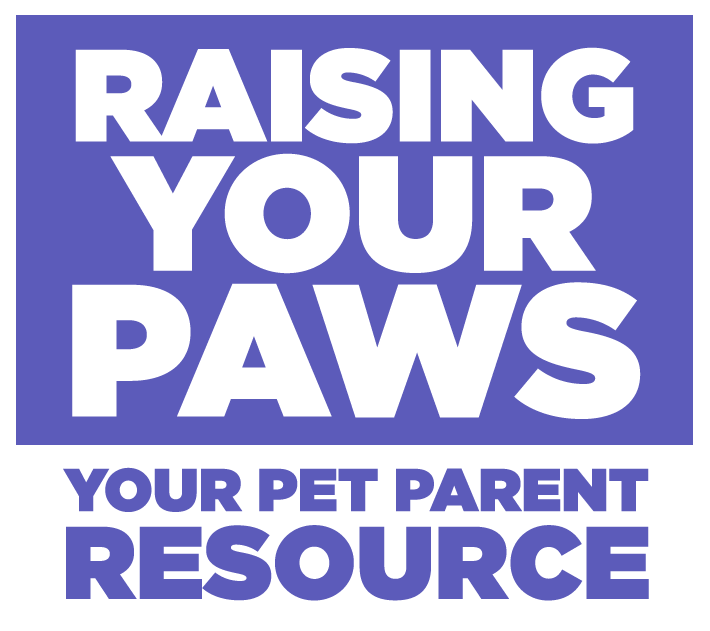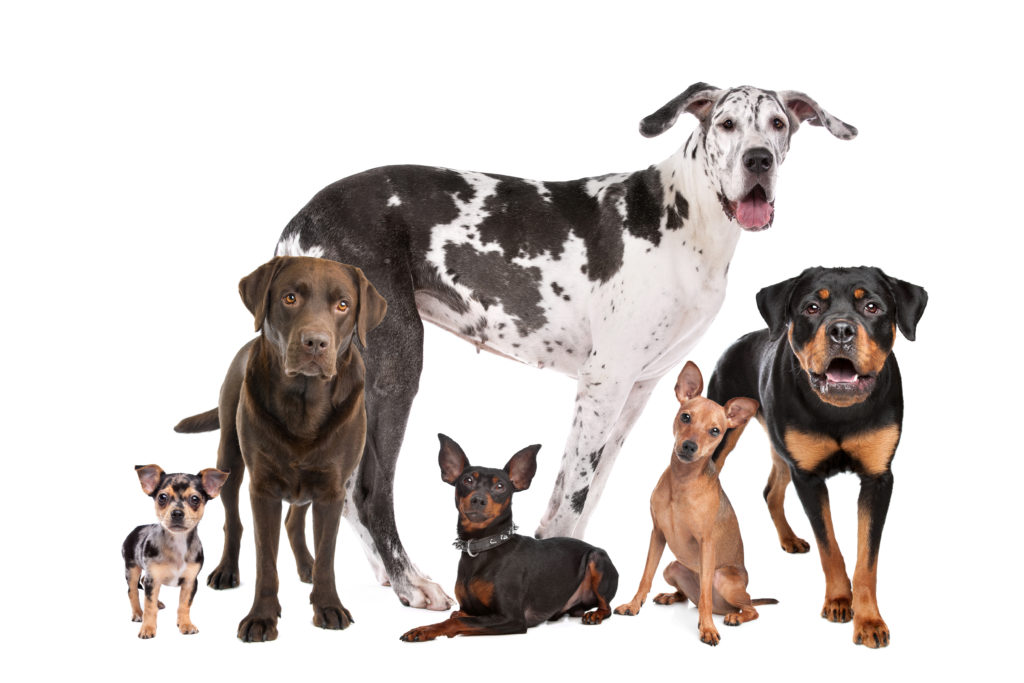Nine reasons to get a small breed dog.
By no means do I want you to think that I prefer small dogs to larger ones. I don’t. I think all dogs can be wonderful and admire all sizes, breeds and mixed mutts. My dog Rosy is a medium sized mix of Shetland Sheepdog, German Shepard and some unknown combination of hound. I love it when she offers her rarely heard long beagle-like howl.
If you are one of the many people that go back and forth in trying to decide if you want a small dog or a large one, you may also wonder if small dogs are better somehow.

Great Dane and French Bulldog.
The answer is that there is only what is best for you – and what size dog may be a better match to live with considering your lifestyle and any physical, financial or time limitations you may have. In this week’s episode of the Raising Your Paws podcast, I spoke about 5 aspects about small dogs that will affect your caring for them – from expenses, to risk of injury, to their behavior, and what that means for you regarding training. Listen to the show below. You’ll want segment 3.
Here are some additional differences and characteristics of small breed dogs versus large ones.
Small Dogs:
Take up less space in the home. If the available room in the home is a consideration for you, any other family members and the dog in order to co-habit peacefully without bumping into each other all the time, or if it would be preferable let’s say, not to be knocked out of bed and relegated to sleep on the floor, while the large dog hogs the bed and takes up all the covers, a small dog may fit your space needs.

Pug.

Great Dane.
Can’t reach as high. Unless they literally leap their whole little body up onto the kitchen counter, they simply can’t reach it, even standing on their hind legs. Of course this does not apply if you leave your sandwich on the low coffee table when you take a bathroom break from watching TV. As long as you don’t leave tempting things on surfaces they can reach with paws or easily open low cabinets, you can worry less about them getting into things when they have free reign of the house.
Eat less. If you’re feeding kibble, a 8 lb. bag of dog food can last a small dog a month. Large cans of dog food last through a number of meals. Since you are buying less food in total, you could consider spending a bit more for a higher quality dog food which makes for healthier dogs.
Have cheaper medicines. Monthly flea/tick, heart worm or other veterinary prescription medicines are usually cheaper for dogs that weigh less. Surgical procedures may also cost less for the smaller bodies. No guarantee here though – you would have to consult with the vet.
Make smaller messes. Some small dog breeds are not always as easy to house train as large dogs, but there is less to clean up. For instance, if a Burmese Mountain Dog pee’s on the floor you have to get a janitor-sized mop and bucket to clean up the small pond of urine. When a Shih Tzu leaves a little piddle, you grab a paper towel.

Burmese Mountain Dog.

Shih Tzu.
Easier to hold in arms and cuddle. There are plenty of large dogs that are very affectionate and will snuggle their bodies right up against you as you both lie down and relax on the couch or bed.

Chihuahau.
But unless it is a Great Dane who thinks they are lap dogs, smaller dogs generally enjoy and tolerate being held on your lap more traditionally. Rosy is not a cuddler. Sigh…….
Easier to walk. A 12 lb dog isn’t going to yank your arm out on a walk, no matter how much they pull. This is not a reason, however not to train them to walk nicely besides you on a loose leash. All dogs need to learn this skill.
Are portable and more welcome. It is fairly easy to get a little dog in the car and go visiting friends and family (as long as you ask if your dog can come over) or when traveling, on longer distance road trips. It’s easier to fly with them as well, it being possible with some airlines to take in the airplane cabin with you if the dog is in carrier and placed under the seat in front of you. Some pet friendly motels/hotels have some limits on how big your dog can be and many apartment or condo associations definitely have weight restrictions, only allowing dogs under 25 pounds to live there.

Golden Doodle.

Morkie ( a mix of a Yorkie and a Maltese)
Live Longer. Small dogs have a longer lifespan than big dogs – some even living twice as long. On average, small ones live for 12-14 years compared to larger breeds at 8 – 10 years but be aware the numbers are not a hard and fast rule – depends upon the breed and the individual dog.

Labrador Retriever barking.

Jack Russell yapping.
In the photo below, I am showing you the relative size of a Miniature Pinscher compared to a German Sheepdox mix so you can see the small dogs size.

A Miniature Pinscher and a German Sheepdog mix.




Reasons you did not list for smaller dogs, that I have experienced.
1. Cannot and do not protect you and your property.
2. Due to small bladder cannt refrain from peeing as often as large dogs.
3. Rarely are they totally potty trained. Rarely.
4. Communication between human and dog is more significant with larger dogs.
5. Accidentally stepping on a smaller is always a risk. But it can happen with larger dogs who relax in the middle if the floor. Or who insist on being at your heels most of the time.
6. Small dogs bark more.
Etc.
Hi Lydia, Thanks for your perspective on some of the other aspects one can experience with small breed dogs.
Yes thank you for your b opinions on small dogs. Thankfully the article dealt with factual information. I’m still trying to understand what “communication between human and dog is MORE SIGNIFICANT with larger dogs”? Can you define significant in that context, because I am confused. Are you confusing size with maturity, intelligence, or intrinsic value. Oh, and if they are rarely if ever potty trained, I would first look to the trainer. And be kind to those of advanced age. Prime time television on any given night is full of warnings and reminders that time puts us back in diapers eventually.